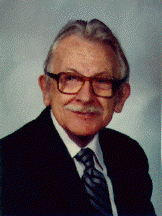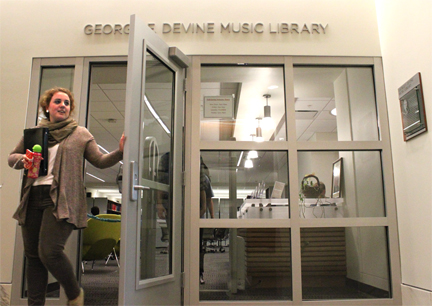Learning to Listen
A Life Lesson From George F. DeVine

02/11/2019
When I was in college, way back in 1980, I had a music history professor named George DeVine. Mr. DeVine looked a bit like Einstein. Besides teaching, he played the bassoon, annotated scores, and had devoted his life’s work to conserving and managing the University of Tennessee music library. He was a kind and gregarious gent, a person with a keen intellect and a ready, impish wit. He was one instructor who was extremely well-liked by his students. Professor George DeVine had no college degree. The furthest his formal education had gone was high school, but somehow this man was made a full professor of music. How? "I read a book once," he replied with a twinkle in his eye. DeVine was a profound autodidact. His knowledge and memory of music was encyclopedic. As a result, the regional symphony tasked him with creating the program notes for their performances for many decades. George lived the music.
A big part of professor DeVine's Music History survey courses was actually listening to musical selections, daily listening, as a class, as we worked our way through the historic periods of music composition. During these listening sessions, Professor DeVine would put on a record of the music in question and stand in front of the class while it played. We are talking about symphonies, Renaissance motets, Baroque chamber music, Impressionist works, modern electronic music, you name it - often long pieces. After dropping the needle on a record, Mr. DeVine would close his eyes and relax his entire body. When the music began he would visibly let it wash over him. As the tension in a piece increased, his brow would furrow, his muscles would tense up, his head would tilt back, his jaw would set, and his hands would scrunch into fists and shake as he reacted. At times during the piece where the tension would release, his body and neck would relax and his hands would hang loosely. At the end of a piece, as the tension drained out, his back would relax, his head would loll, and his face would momentarily adopt a beatific look as though he had received a revelation. He lived the music.
I decided that I wanted to listen like George DeVine.
I certainly bedeviled him enough. My class of students wasn't particularly sharp, so when he would play a selection and ask the class to name the composer and the piece there were inevitably these long, tortured, embarrassing silences. With the hairs on the back of my neck standing up, I would put up my hand, and he'd give me a shot. Whether we were listening to a 14th century motet or a 16th century minuet, my answer was always the same: "Gershwin, Rhapsody in Blue." Satisfyingly, he would physically recoil in horror, EVERY. SINGLE. TIME. But in his great humor he accepted my gentle attempt to relieve the stress of the ignorant, embarrassing pauses and we got along great. In fact, he always attended the premiers of my music compositions and ended up being one of the most influential professors in my music career. Professor DeVine passed away in 1999, attended to and cared for by some of his beloved students, but that was one man who had had lived the music.

Today if you need access to a piece of music at the University of Tennessee (Knoxville) School of Music, you go to the George F. DeVine Music Library. I thought I was the only one who noticed how extraordinary this man was. Silly me.
So, when you are thinking about how you should listen to music, think about Professor DeVine. Take a pause from life. Relax. Close your eyes. Let the music flow over you. FEEL the increases and decreases in tension and let your body sympathetically react to it. Let the music change you. Live the music.
= =
=


